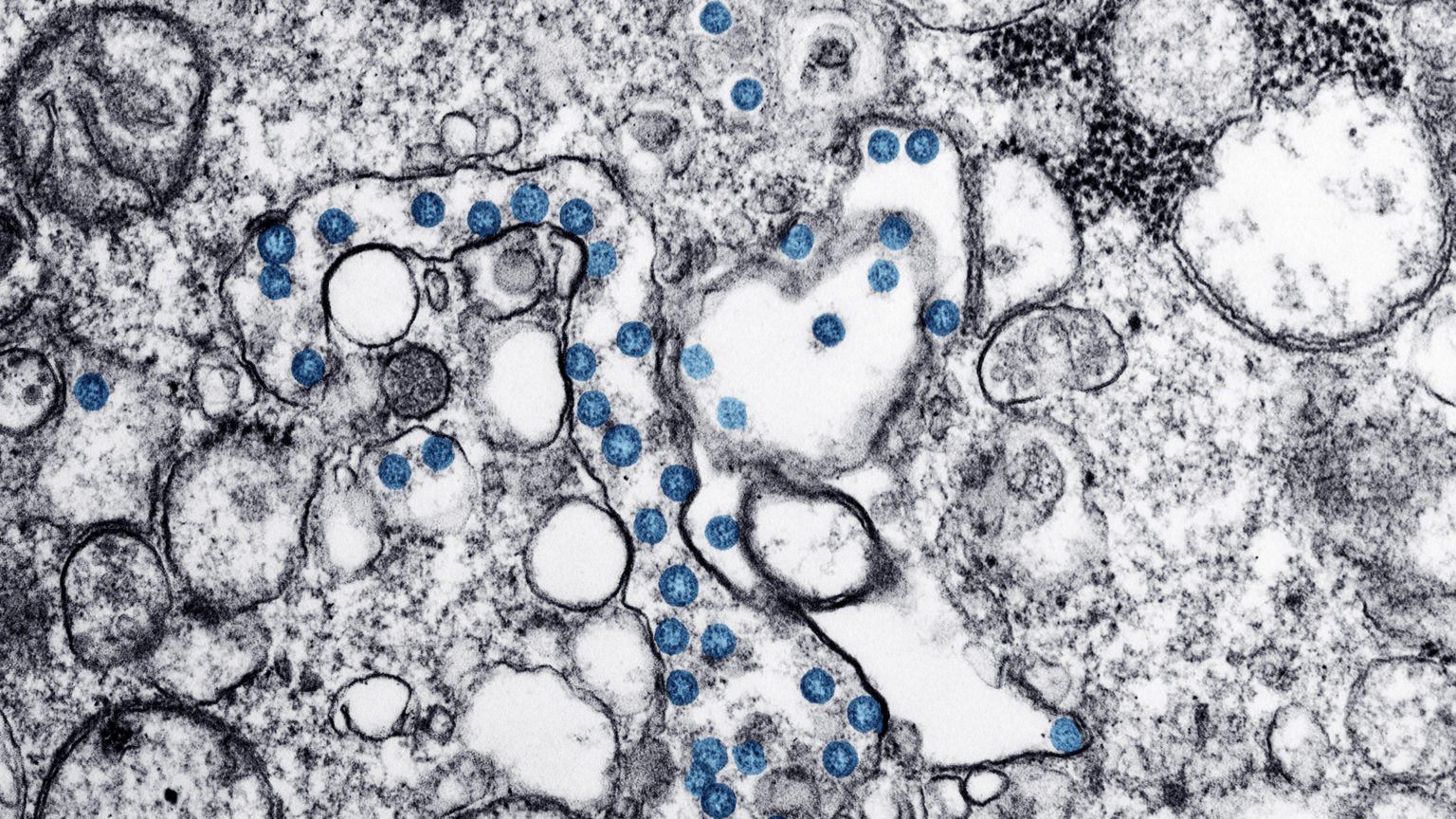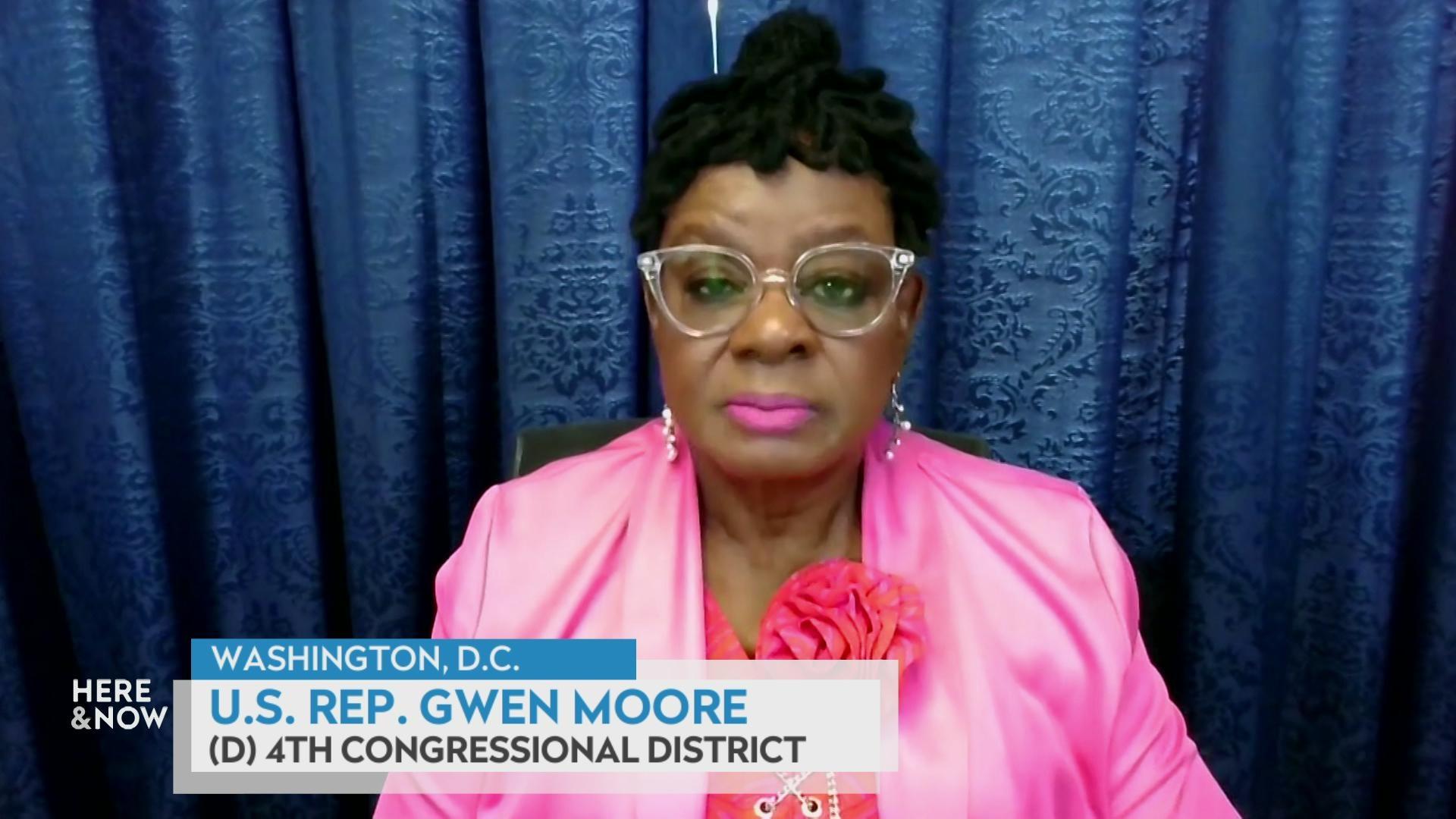State Prepares Testing, Response for Coronavirus
Wisconsin can now conduct in-state coronavirus tests according to a state health department briefing Monday. Laboratories in Milwaukee and Madison can test upwards of hundreds of samples.
March 2, 2020

Transmission electron microscopic image of an isolate from the first U.S. case of COVID-19, formerly known as 2019-nCoV. The spherical viral particles, colorized blue, contain cross-sections through the viral genome, seen as black dots. (CDC/ Hannah A Bullock; Azaibi Tamin)
The state is prepared to test up to hundreds of potential novel coronavirus, or COVID-19 cases with new test kits from the Centers for Disease Control.
Officials from the Department of Health Services said Monday that results could come as quickly as one or two days depending on the volume of samples collected. The state has two facilities at the State Laboratory of Hygiene on the UW-Madison campus and the Milwaukee Health Department that can now handle in-state testing.
State health officials are using CDC guidance to determine who is eligible for coronavirus testing. Criteria include symptoms of fever and respiratory illness paired with close contact to a suspected case of COVID-19. A person can also be tested if they are hospitalized for the same symptoms and recently travelled to coronavirus-affected areas or the symptoms are otherwise unexplained.
The risk to the state remains low, State Health Officer Jeanne Ayers said at a Monday briefing. She and other officials advised limiting foreign travel to places where coronavirus is prevalent, but said domestic travelers do not need to take any more precautions than travelers normally would.
“Please use good cough and respiratory etiquette, especially if you’re traveling by airplane or whatever method you’re traveling,” said Tom Haupt, respiratory disease epidemiologist for DHS.
If the spread of coronavirus does reach Wisconsin, health officials said residents can prepare for the disease the same way they would for other natural disasters.
“As far as stocking up on other things like food, water, that type of thing, that’s always a good idea to have some on hand no matter if it’s a coronavirus situation, influenza or any other kind of natural disaster,” Haupt said.
“But our recommendations have not changed as far as things like masks,” he added. “We really do not recommend that people buy them in bulk and store them.”
Planning ahead to a potential spread of the virus in Wisconsin, Ayers said the state will work to make sure residents are able to safely self-quarantine if need be.
“When we move from this containment stage to controlling the spread in the community, we’re going to need a lot of support from employers and housing to allow people to be working from home,” she said.
Schools are also considering options for keeping students at home, like revisiting policies created during the H1N1 outbreak in 2009. According to Wisconsin Public Radio, the Random Lake School District is also considering a model it used during a slew of bad weather last year: holding virtual school days.
Haupt said DHS is preparing for the potential spread of illness via any large gathering, especially as Milwaukee gears up for the Democratic National Convention this summer.
“With the City of Milwaukee to really monitor all kinds of diseases that might be going on–I think we’re going to be very well prepared for that,” he said.
 Passport
Passport











Follow Us